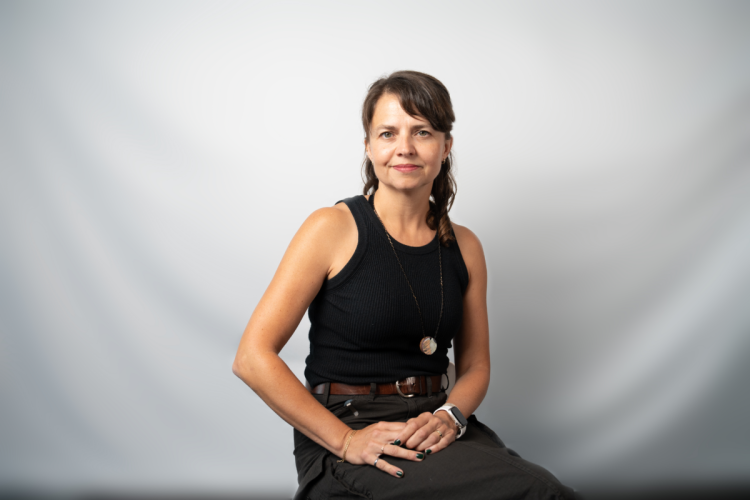As Canada explores clean energy solutions, nuclear power is expected to play a significant role; Magdalena Krol, a professor in York University's Lassonde School of Engineering, is working to prioritize its safe use and disposal.
Looking back, Krol didn't anticipate she would go nuclear.
While working toward degrees in civil and environmental engineering from Western University, Krol was interested in exploring groundwater remediation - the process of treating water that has been contaminated from, for example, oil spills.
When she moved on to doctoral studies at the University of Toronto, however, she encountered the Nuclear Waste Management Organization (NWMO), which implements Canada's plan for the safe, long-term management of spent nuclear fuel.

Magdalena Krol
She learned when spent uranium dioxide from nuclear reactors is disposed of, it is first typically stored in concrete dry storage canisters (at reactor sites) and later, eventually stored deep underground. To ensure long-term safety of the project, NWMO works with researchers to investigate if and how underground conditions might impact the long-term stability of the containers. These underground conditions were something Krol was familiar with.
"It didn't occur to me that hydrogeology is needed in that field," Krol says, referring to the area of geology concerned with movement of groundwater, a field of study Krol specializes in. "Once you take spent nuclear fuel and put it underground, you're now in my area of expertise."
Krol began working with NWMO and others, becoming a leader and partner in efforts to better understand the safe handling and disposal of used nuclear fuel. Her efforts have been recently advanced with significant funding for two major collaborative research projects focused on the safe handling and disposal of used nuclear fuel.
The first project, led by Western University and Krol's longtime collaborator, Professor James Noël, was awarded nearly $5 million from Natural Resources Canada (NRCan) to advance research on small modular reactors (SMRs) - a new generation of compact, portable and highly efficient nuclear reactors. SMRs, Krol explains, rely on tiny uranium-based particles encased in ceramic layers that allow them to operate at high temperatures on a much smaller scale than traditional reactors.
The NRCan-funded project, in collaboration with the Canadian Nuclear Laboratories, is part of a larger national initiative to advance knowledge of SMRs to ensure its eventual safe deployment. Krol's role in this initiative is to contribute research that proactively considers how SMRs can be responsibly decommissioned without contaminating the environment. "Waste management typically comes later. But, in this case, because it's a new type of fuel reactor, we can look at it from the beginning and end right away, before we even start using them," Krol says.
Krol is involved with another project - this one a four-year Natural Sciences and Engineering Research Council of Canada (NSERC) Alliance-Mitacs initiative in partnership with NWMO with a similar goal. For this project, she will study how water and chemical compounds might move through the bentonite clay that encases copper-coated waste containers storing used nuclear fuel underground. The findings will help assess whether corrosive compounds could eventually reach and compromise the containers, creating an environmental risk.
The project's shared mission to ensure safe nuclear waste disposal aligns closely with Canada's and Ontario's increasing reliance on nuclear energy. As Krol notes, nuclear power generates about 15 per cent of Canada's electricity - and about 50 per cent in Ontario - without the carbon emissions of fossil fuels.
"It's important for Canadians and the world to invest in clean technology to get our electricity from and nuclear is a great option for that," says Krol.
Equally important, she notes, is investing in research that ensures the use of nuclear energy will have no future environmental repercussions. "Doing research to ensure safe disposal is really important because we have to make sure disposal of nuclear fuel is safe for generations to come," Krol says. That's why the recent NSERC and NRCan funding - and the growing number of projects she's involved in - give her hope for the future.
"The funding is significant, but so is the message it sends," says Krol. "It shows that Canada is investing in clean energy innovation and in making sure we're doing it safely."
This story was originally featured in YFile, York University's community newsletter.










